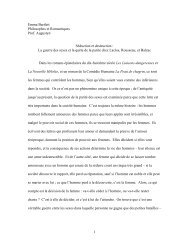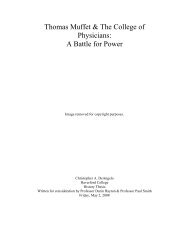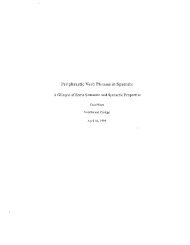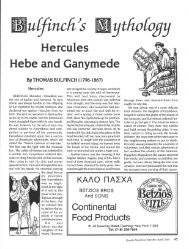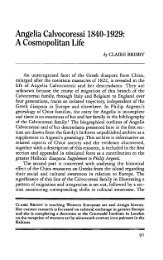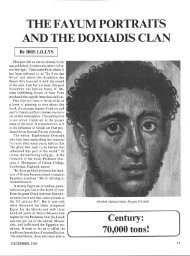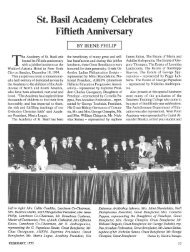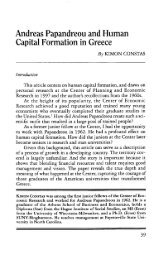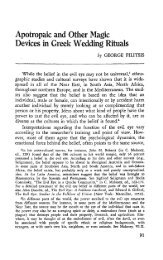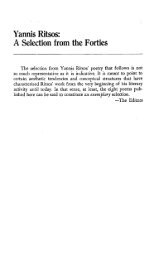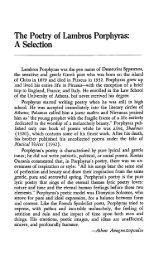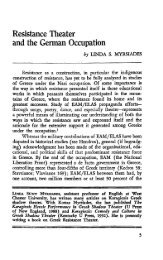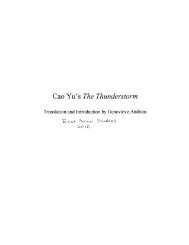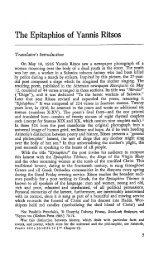Translating Neruda: Femininity and Sensuality ... - Triceratops Home
Translating Neruda: Femininity and Sensuality ... - Triceratops Home
Translating Neruda: Femininity and Sensuality ... - Triceratops Home
You also want an ePaper? Increase the reach of your titles
YUMPU automatically turns print PDFs into web optimized ePapers that Google loves.
Mueller 12<br />
The description of waves <strong>and</strong> shores similarly suggests an aspect of impermanence in the<br />
relationship, with the coming-<strong>and</strong>-going rhythm of the tides <strong>and</strong> the waves themselves. If<br />
this woman described here is so similar to the ocean, the speaker’s inability to hold on to<br />
her is therefore justified <strong>and</strong> underst<strong>and</strong>able. Just as it is impossible to hold a wave, it is<br />
impossible to hold another person just by loving them. The speaker loves this woman so<br />
much that his soul shines like stars (lines 11-12), but this love alone is not enough to<br />
stave off the night of loneliness.<br />
The final stanza is the poem’s most explicit sexual metaphor: “Galopa la noche en<br />
su yegua sombría / desparram<strong>and</strong>o espigas azules sobre el campo.” The two phrases<br />
together portray the penetration <strong>and</strong> insemination phases of sexual intimacy, <strong>and</strong> increase<br />
the overall erotic sense of the poem as a whole, a sense that, as we will see more clearly<br />
later on, does not necessarily come through in translation. The act of penetration is<br />
represented by the metaphor of night riding a horse, an explicit parallel to the typical<br />
male <strong>and</strong> female roles during sexual intercourse. The second line could be interpreted in<br />
a purely agricultural context by reading “desparramar” as meaning “to scatter.” But the<br />
word can also mean “to spill” a liquid, <strong>and</strong> when read thus, the implication of semen is<br />
obvious, as the liquid seed from the previously described sexual act which then fosters<br />
new growth. The fact that this poem culminates in an abstracted, nature-centric<br />
description of a human sexual act exemplifies the way in which <strong>Neruda</strong> uses nature to<br />
define <strong>and</strong> explore the relationship between the speaker <strong>and</strong> the woman in this poem.<br />
In Residencia en la tierra, a collection written in three parts from 1925 to 1945<br />
<strong>and</strong> published between 1933 <strong>and</strong> 1947, <strong>Neruda</strong>’s writing makes a marked shift to a<br />
greater focus on the physical world in <strong>and</strong> of itself, rather than just as a way of describing



